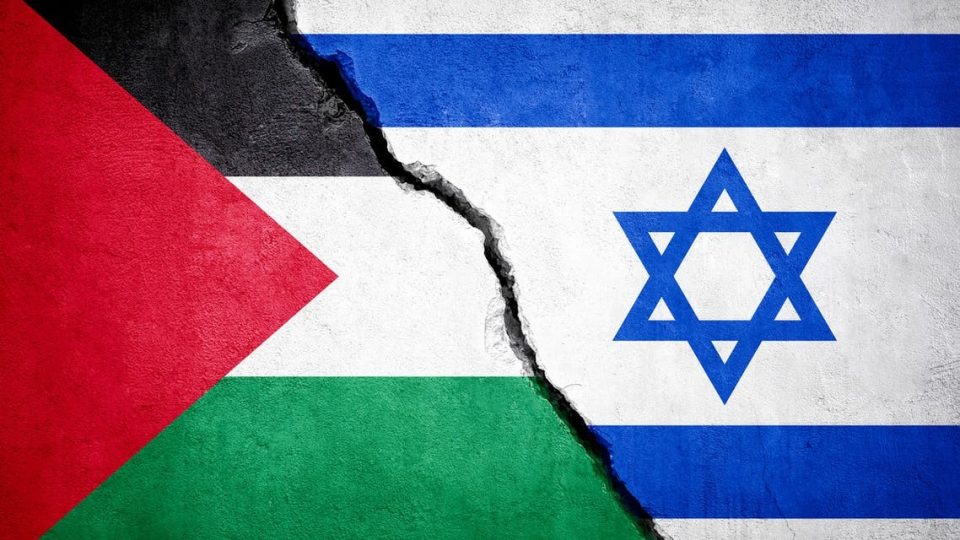During the escalating situation between Israel and Palestine a renewed discussion of the semantic difference between the concepts of Anti-Semitism and Anti-Zionism became central once more. The distinction between both terms is emphasized to highlight that the Palestinian cause isn’t grounded in Anti-Semitism rather in countering Zionism that is exemplified in the occupation.
Nevertheless, the concept of Anti-Semitism gets overused and is often weaponized to shut down any criticism of Israel’s policies. Its definition has evolved over time, and for the West and other parts of the world it relates directly to the persecution of Jews. The issue here is that the Palestinians are Semites too.
This is overlooked, and by the Palestinians themselves, it appears.
Palestinians are probably too late to attempt to show that this is a false narrative: there is a growing shift from Israeli apologists to push the view that Anti-Zionism is the new Anti-Semitism.
It’s clever because Anti-Semitism and Anti-Zionism shouldn’t be conflated as one and the same thing.
One of the most prominent examples of how Anti-Semitism is reduced to being critical of Israel is when Prime Minister Netanyahu condemned the International Criminal Court’s (ICC) decision to investigate war crimes that could be taking place as “pure Anti-Semitism.”
How can an investigation carried out by an impartial court that has international jurisdiction be guided by hatred towards Jews?
A surge in the number of Anti-Semitic incidents has been reported across European cities. Some might argue that discussion about these incidents shouldn’t happen because they pale in comparison to the horrors of war and destruction experienced by the inhabitants of the Gaza strip.
I would disagree with that logic, not only because of the prime principal that innocent people shouldn’t be held responsible for the mere fact that they manifestly belong to a certain religion, but also because I believe these incidents do more harm to the Palestinian cause that we, Arabs and Muslims, were raised to sanctify as central to our identity. The logic of my argument is quite simple and should be obvious to everyone.
Israel as a state was constructed based on a Theo-ideological principle. A country that protects, ensures and sustains Jewish existence. A Jewish homeland that is supposed to offer the world Jewry a refuge from external threats that aim to annihilate them. Israel is the manifestation of “Never Again.”
So when “sympathizers” with the Palestinian cause drive through Jewish neighborhoods in London and start shouting “Kill the Jews,” British Jews will feel unsafe. This feeling of unsafety in one’s home, and the feeling that you need to hide a part of your identity will further corroborate the Israeli raison d’etre. Jews can only be safe if they perform Aliyah and return to their homeland, which means further displacements for Palestinians.
The difference between Zionism and Judaism is iterated again by logical Palestinians and activists. Some would say that they are not against Judaism because both Muslims and Christians believe in the veracity of Judaism as the origin of Abrahamic religions. There is a Prophetic saying in Islam that states that to be a Muslim you must believe in God, all His prophets and all His books.
Consequently, all Muslims must believe in Judaism and venerate Moses. Furthermore, Arabs are also Semites. That is why we call Jews our cousins. So how can supporters of Palestinians be anti-Semites?
The problem with this logically sound argument is that European Jews do not necessarily endorse, nor support Israel’s policies. When they are attacked for the mere fact that they are Jewish this argument fails and the distinction between Anti-Semitism and Anti-Zionism become nullified.
Jews who were originally critical of the occupation and of the injustice that befalls the Palestinians everyday sympathize with Israeli actions because it is only trying to protect their own. They might even wonder that if they were living in Israel would they feel as vulnerable.
The Abraham accords, the Egyptian Peace treaty and the Jordanian Peace treaty symbolize hope for an eternally volatile region. Let’s be guided by hope and peace and not give in to blind and vile hatred.
Adapted from its original source
Statements, comments or opinions published in this column are of those of the author(s) and do not necessarily reflect the editorial policy of Warsan magazine. Warsan reserves the right to moderate, publish or delete a post without prior consultation with the author(s). To publish your article or your advertisement contact our editorial team at: warsan54@gmail.com


